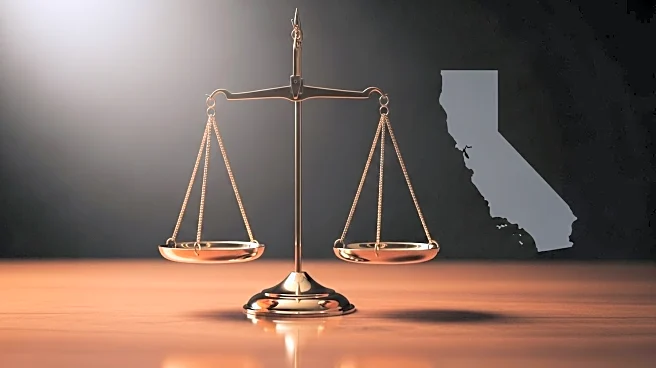What is the story about?
What's Happening?
Two federal district courts in California have ruled that the Federal Trade Commission's (FTC) standards for 'Made in USA' claims do not preempt California's safe harbor provisions under Section 17533.7 of the False Advertising Law. This decision comes amidst ongoing litigation, including McCoy v. McCormick & Co., Inc, where the plaintiff alleged that McCormick's mustard labeling violated California law despite containing imported ingredients. The courts found no inconsistency between the FTC's requirement that products be 'all or virtually all' made in the U.S. and California's allowance for products with up to 10% foreign content if comparable domestic inputs are unavailable. The rulings suggest that marketers can label products under California's safe harbors without risking FTC enforcement, although the FTC's agreement on this interpretation remains uncertain.
Why It's Important?
The rulings are significant for marketers navigating the complex landscape of 'Made in USA' claims, particularly in California, which has historically had stricter standards than the FTC. The decisions provide clarity on the application of California's safe harbors, potentially reducing the risk of class action lawsuits for products that meet these criteria. However, the FTC's stance on whether its standards align with California's remains a critical factor for businesses. The rulings highlight the ongoing tension between state and federal regulations, impacting how companies market their products nationwide. This could influence consumer perceptions and trust in 'Made in USA' labels, affecting purchasing decisions and brand reputation.
What's Next?
Marketers should carefully evaluate the FTC's enforcement risk before making unqualified 'Made in USA' claims, even if products fall within California's safe harbors. The FTC's position on these rulings could lead to further legal challenges or adjustments in marketing strategies. Companies may need to consider additional compliance measures to ensure alignment with both state and federal standards. The ongoing litigation and potential FTC actions could shape future regulatory developments, influencing how 'Made in USA' claims are governed across the U.S.
Beyond the Headlines
The legal landscape surrounding 'Made in USA' claims underscores broader issues of consumer protection and transparency in advertising. The tension between state and federal standards reflects challenges in balancing local economic interests with national regulatory consistency. As global supply chains evolve, the definition of 'Made in USA' may continue to be contested, prompting discussions on the ethical implications of labeling practices and consumer rights.
















